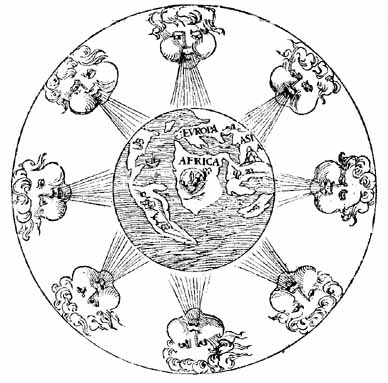STEP at ESHS!!
STEP members have an important presence at the 4th International Conference of the European Society for the History of Science, which takes place in Barcelona, 18-20 November 2010.
A STEP-subject session has been organized by Geert Vanpaemel, with the collaboration of Manolis Patiniotis and Josep Simon (including papers by Geert Vanpaemel, Manolis Patiniotis and Timo Myllyntaus).
In addition, a large number of STEP members are giving papers and coordinating thematic sessions, many of which are connected to the development of long term projects emerging within STEP’s research environment and presented in previous STEP conferences. Some of the initiatives in which STEP members participate at ESHS are the following:
Masanori Kaji has organized a panel on “Chemical Order in Transit: Comparative Studies of the Response to the Periodic System” which is another step in an ambitious project of research on the periodical table in international perspective. This panel is an advanced version of the one organized by Masanori in the last STEP conference (Galway, 2010). It counts with the participation of Anders Lundgren, José R. Bertomeu, Rosa Muñoz, Gisela Boeck, Antonio García Belmar, Helge Kragh and Isabel Malaquias, among others.
Agustí Nieto-Galan, who has been prominently involved during the last years in long-term projects on the history of science popularization in Spain and in the STEP international context, coordinates a session on “Science in the Public Sphere: Barcelona, 1868-1939”. The panel includes papers by Jaume Sastre, Alfons Zarzoso, Jordi Ferran, Enrique Perdiguero and Àlvar Martínez Vidal, and Yoko Tochigi. This session is connected to STEP’s research group “Popularization of Science and Technology: Centres and Peripheries”.
Mónica Blanco organizes a panel on “Circulation of Mathematical Knowledge in 18th-Century Britain: New Perspectives” aimed at investigating the circulation of mathematical knowledge between Britain and Continental Europe, and to revise the declinist historiography of eighteenth-century British mathematics through a framework based on the study of circulation and appropriation.
Ana Simoes and Faidra Papanelopoulou organize a panel on “Representations of Science and Technology in the European Daily Press”, which stems from the long-term Portuguese and Greek projects on periodicals. The panel includes papers by Arne Schirrmacher, Rui Brito Fonseca, Maria Antónia Pires de Almeida, Ana Cristina Martins, and, notably, a comparative paper on “Public Perceptions of Science and Technology in the Greek and the Portuguese Daily Press, 1908-1910” by Ana Carneiro, Maria Paula Diogo, Ana Simões, Isabel Zilhao, Eirini Mergoupi-Savaidou, Faidra Papanelopoulou, and Spyros Tzokas.
Oliver Hochadel coordinates a session on “Science and National Identity after 1945”, which is an expanded development of the panel on “The Frame of the Nation. Science and National Identity in the European Periphery after 1945” presented at the last STEP conference. The session puts together case studies on six national contexts and includes papers by Mª Fátima Nunes and Maria Margaret Lopes, Oliver Hochadel and Matiana González, among others.
Annette Mülberger coordinates a session on “Appropriation of Mental Measurement in Different Cultural Contexts” which is a new research step in her work on this subject, after the session that she organized at the 7th STEP meeting, and counts with the participation of Ana Maria Jacó-Vilela, among other scholars.
Maria Rentetzi co-organizes a panel on the “Circulation of Ideas, Techniques, and the Scientific Personae – the Role Networks did Play, from the Gender Perspective” in the context of the Women's Commission of the DHST/IUHPS, which includes papers by José Alberto Silva and Maria Margaret Lopes among others.
Pedro Ruiz-Castell coordinates a panel on “Beyond the Molecular Vision: Unromantic Perspectives on the History of Biophysics” whose aim is to revise the discipline-oriented and DNA-centric historiography of molecular biology by re-envisioning the history of the biological sciences in the twentieth century along less molecular, less disciplinary and less elitist/academic lines.
Josep Simon coordinates a panel on “Cross-National and Comparative History of Science Education”, which is a step forward in the development of a comparative and cross-national historiographical agenda. This panel is an initiative in the framework of STEP’s research group on “Cross-National, Comparative and Transnational History of Science, Technology and Medicine” and is connected with a session on this topic organized by Josep Simon and Néstor Herran at the 7th STEP meeting.
Other STEP members are participating actively in the ESHS conference by giving papers in panels such as that devoted to “Nuclear Physics after WWII” (Kaan Ata and Júlia Gaspar), “Writing the History of the Physical Sciences after 1945” (co-organized by Néstor Herran and counting with the participation of Gisela Mateos), “The Travels of Scientists in Europe since the 16th Century” (Teresa Nobre de Carvalho, Feza Günergun, Conceição Tavares), “Applied Biology: Practical Tasks and Fundamental Research” (Staffan Müller-Wille), “Darwin in Urban Contexts, 1859-1930” (Juliana Adelman), “Knowledge and Technology in the Mediterranean Basin” (Irina Gouzevitch and Dmitri Gouzevitch), “Within Europe and beyond Europe: the Jesuits as Circulators of Science (Luís Miguel Carolino), and miscellaneous sessions on “Natural History and Medicine from the 16th to the 19th Century” (Elena Serrano) and “Medicine in the 20th Century” (Maria Elvira Callapez and Ernst Homburg).
All in all a strong STEP presence in Barcelona, 18-20 November 2010!!

